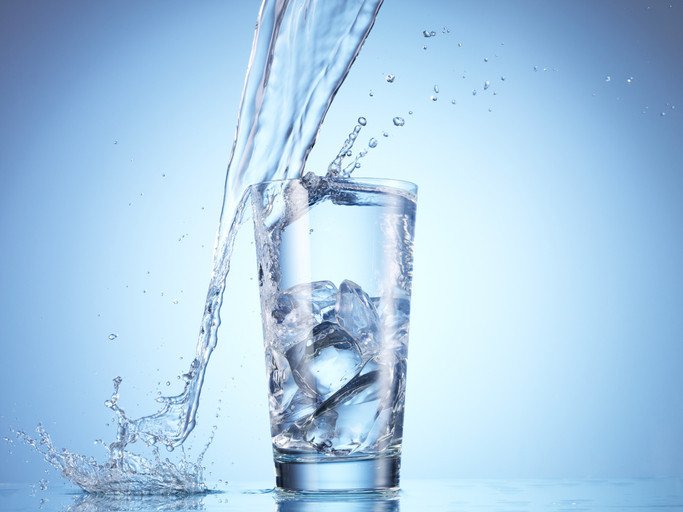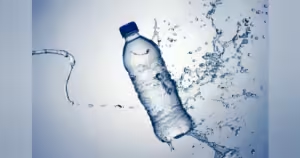Drinking Water: The Vital Role in Daily Life
Drinking water is essential for life. It supports almost every function in the human body, from maintaining hydration to aiding in digestion. Without it, our survival would be impossible. Let’s explore why drinking water is so crucial and how it benefits our overall well-being.
Understanding the Importance of Hydration
Water makes up about 60% of the human body. It plays a key role in regulating body temperature, delivering nutrients, and flushing out toxins. When you drink enough water, your body operates more efficiently. On the other hand, dehydration can lead to fatigue, dizziness, and even serious health problems.
Benefits of Drinking Water
Drinking water offers numerous health benefits. It improves energy levels by replenishing fluids lost through sweat and other bodily processes. Additionally, it helps maintain clear skin by flushing out impurities. Water also supports proper digestion and prevents constipation, ensuring that your system functions smoothly.
Another important benefit is how drinking water aids in weight management. Often, our bodies confuse thirst with hunger. Drinking a glass of water before meals can curb overeating and keep you hydrated at the same time.
How Drinking Water Affects Your Brain
Your brain depends heavily on hydration to function effectively. Even mild dehydration can impair mood, focus, and memory. water helps maintain mental clarity and reduces the risk of headaches caused by dehydration.
In high-stress situations or periods of intense concentration, sipping water can keep your brain sharp. It’s a simple yet powerful way to boost cognitive performance.
The Connection Between Drinking Water and Physical Health
Water is essential for physical health. It lubricates joints, reducing the risk of injury and improving flexibility. Drinking water also enhances muscle function, which is why athletes prioritize hydration during training and competition.
Moreover, water supports your immune system. By helping flush out harmful bacteria and viruses, water contributes to a stronger, more resilient body.
How Much Water Should You Drink?
The amount of water a person needs varies based on factors like age, activity level, and climate. However, a general guideline is to drink eight 8-ounce glasses of water a day, commonly known as the “8×8 rule.”
Listening to your body is important. Thirst is a natural signal that you need more fluids. Keep in mind that beverages like tea, coffee, and juice contribute to hydration, but plain water remains the best choice.
Tips for Making Drinking Water a Habit
Many people struggle to drink enough water daily. Here are a few tips to help:
- Carry a water bottle: Having water on hand makes it easier to stay hydrated throughout the day.
- Set reminders: Use your phone or a hydration app to remind you to drink water regularly.
- Add flavor: If plain water feels boring, add a slice of lemon, cucumber, or mint for a refreshing twist.
- Drink water with meals: Pairing water with your food helps you consume more without even thinking about it.
The Risks of Not Drinking Enough Water
Failing to drink sufficient water can lead to dehydration. This condition may cause symptoms like dry mouth, dark urine, and muscle cramps. Severe dehydration can result in complications such as kidney stones, urinary tract infections, or heatstroke.
In the long term, inadequate water intake may negatively affect organ function. water consistently is the simplest way to avoid these risks.
Environmental Impact of Drinking Water
It’s also important to consider where your drinking water comes from. Many people rely on bottled water, which generates plastic waste and impacts the environment. Opting for tap water with a reusable bottle reduces waste and is more cost-effective.
Ensuring access to clean water for everyone is a global challenge. By being mindful of water usage and supporting sustainable practices, we can help preserve this precious resource.
The Role of Water Quality
Not all drinking water is the same. Clean, safe water is essential for health. Contaminated water can carry harmful bacteria, viruses, and chemicals, posing serious risks. Using water filters or purifiers ensures that the water you consume meets safety standards.
Communities and governments play a crucial role in maintaining water quality. Investing in infrastructure to provide clean water is vital for public health.
Staying Hydrated in Different Conditions
Your hydration needs may change depending on the environment. During hot weather, you lose more water through sweat and need to drink more. Similarly, if you’re physically active, your body requires extra fluids to replenish what’s lost.
In colder climates, people often forget to drink water because they don’t feel as thirsty. However, staying hydrated remains just as important for maintaining energy and warmth.
Myths About Drinking Water
Several myths surround water. One common misconception is that you must drink eight glasses a day, regardless of individual needs. In reality, hydration requirements vary. Another myth is that coffee and tea dehydrate you; while they are diuretics, they still contribute to your overall fluid intake.
Understanding these facts helps you focus on what truly matters: drinking enough water to meet your body’s needs.
Simple Ways to Increase Water Intake
If you’re looking to boost your hydration, small changes can make a big difference. Start your day with a glass of water. Keep a bottle at your desk or bedside. Replace sugary drinks with water to reduce calorie intake and stay hydrated.
Tracking your water consumption can also help. Use apps or journals to monitor your daily intake and make adjustments as needed.
Final Thoughts on Drinking Water
Drinking water is one of the easiest and most effective ways to maintain good health. From improving physical performance to supporting mental clarity, its benefits are countless. By making hydration a priority, you can enhance your quality of life and reduce the risk of health issues.
Incorporating water into your daily routine doesn’t have to be complicated. With simple strategies, you can ensure your body gets the fluids it needs to thrive. Drinking water truly is a cornerstone of well-being.

